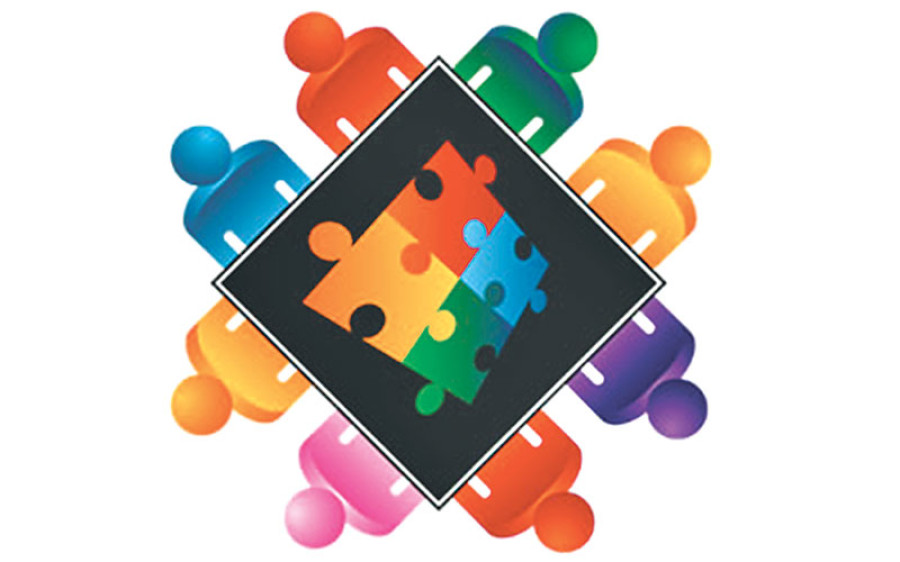Opinion
No time for politics
The sweeping election victory of the left alliance consisting of the CPN-UML and the CPN (Maoist Centre) has ended a decade-long transition period marked by musical chairs-like government changes,
Niranjan Mani Dixit
The sweeping election victory of the left alliance consisting of the CPN-UML and the CPN (Maoist Centre) has ended a decade-long transition period marked by musical chairs-like government changes, a protracted Constituent Assembly, disputes over constitutional clauses, intermittent external interference, sloppy governance and rampant corruption. The deadlock over the issue of holding the National Assembly election first or forming the government first, akin to the chicken or the egg conundrum, has ended.
The inopportune proposition of creating the party unification modality prior to forming the new government has been grossly misinterpreted as being the people’s mandate. The tussle for power between the two majority party supremos over the positions of party chair, parliamentary party leader and prime minister is worrisome. The people’s mandate is actually forming new governments at the provincial and federal levels, and kicking off national development activities by correcting past mistakes.
Test in competence
After having experienced a rigorous process of democratic exercises and upheavals for the past seven decades, the Nepali people are amply conscious, intelligent and judicious in decision making. Politics and the political system are not an end in themselves as may have been portrayed, but a means to safeguard the national interest and achieve development goals. Never ending political intrigues, idiosyncratic political attitudes, behaviours and egotism, political juvenility and development management inexperience which are inconsistent to the people’s mandate should be eliminated by the party leadership.
The tests of political leadership lie in a smooth and effective execution of the federal system, and utmost maturity and competence in producing tangible outputs and outcomes which lead to people’s wellbeing and national development. The new federal government already has a mountain of accumulated priorities carried over from the past. It has a lot to accomplish from day one without wasting even a single minute. It has to become evidence-based, value adding, constructive and optimally productive in a time bound, qualitative, cost-effective and sustainable manner.
National priorities
All the political issues have been like resolved, and the country should now embark on economic growth and infrastructure development by thinking of long-term goals and focusing on short-term powerful actions to produce quick results. Any increase in direct and indirect tax rates should be carefully decided and not directed to a populist budget. The greater the production in agriculture, horticulture, livestock, dairy and manufacturing industries besides hydropower and tourism, the greater the amount of tax revenue for the government to pay for the cost of federal structures and development needs while still keeping tax rates low and affordable.
The people have been economically debilitated and the business sector is in a downturn. The export of human capital as migrant workers and Nepal’s economic and infrastructure development suffering a serious setback for lack of new job creation needs to be re-examined. At least 40 percent of the country’s agricultural land has been lying fallow, and 500,000 active youths are entering the labour market annually but there are no jobs to be had. It is urgent to complete the reconstruction of homes and infrastructure destroyed by the 2015 earthquake. Likewise, 21 national pride infrastructure projects and others in the pipeline including railways, roads and hydropower need to be implemented.
The people’s mandate as expressed through the federal election dictates that service delivery be decentralised and optimised all across the country and not made Kathmandu-centric. The concentration of medical colleges, employment opportunities and business centres in the capital has led to a demographic influx. Effective measures need to be implemented to prevent air and highway accidents. Excessive air pollution caused by damaged and dusty roads, traffic jams and a high automobile density in urban centres like Kathmandu should be addressed.
Violence manifests itself in different forms. They include insecurity in rural communities along the southern border with India, domestic violence where 22 percent of women between the ages of 15-49 experience physical violence while 7 percent experience sexual violence, human trafficking and child labour. They should be stopped. Investigations into rampant corruption, money laundering and cartels should be started.
With regard to external relations, pending bilateral issues should be dealt with while maintaining equidistance and friendly ties and cooperation with our friendly neighbours, India and China. The federal government should resolve issues like the Lipulekh/Lipu Himalayan pass agreement and the occupation of Nepal’s Kalapani and Susta. Dilapidated demarcation pillars, embankments and dams causing flood insecurity in the Tarai plains should be built and rehabilitated. The 1950 Nepal-India Treaty of Peace and Friendship should be amended.
Democracy is not a whimsical mindset of unpredictability, nor can it be assumed to be a ‘game of any possibilities’ as often said, as it misconstrues the people’s mandate, which costs the country dear. Party politics and power struggles should not be permanent issues as they are counterproductive to the wellbeing of the people and the core business of nation building. However, they can happen every five years during federal elections as in the intelligent and successful democracies of the West.
Dixit is an expert in integrated development issues




 12.99°C Kathmandu
12.99°C Kathmandu










